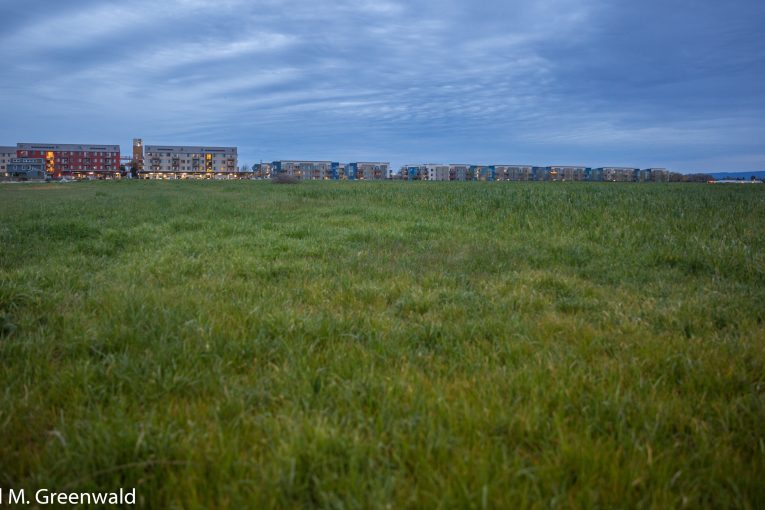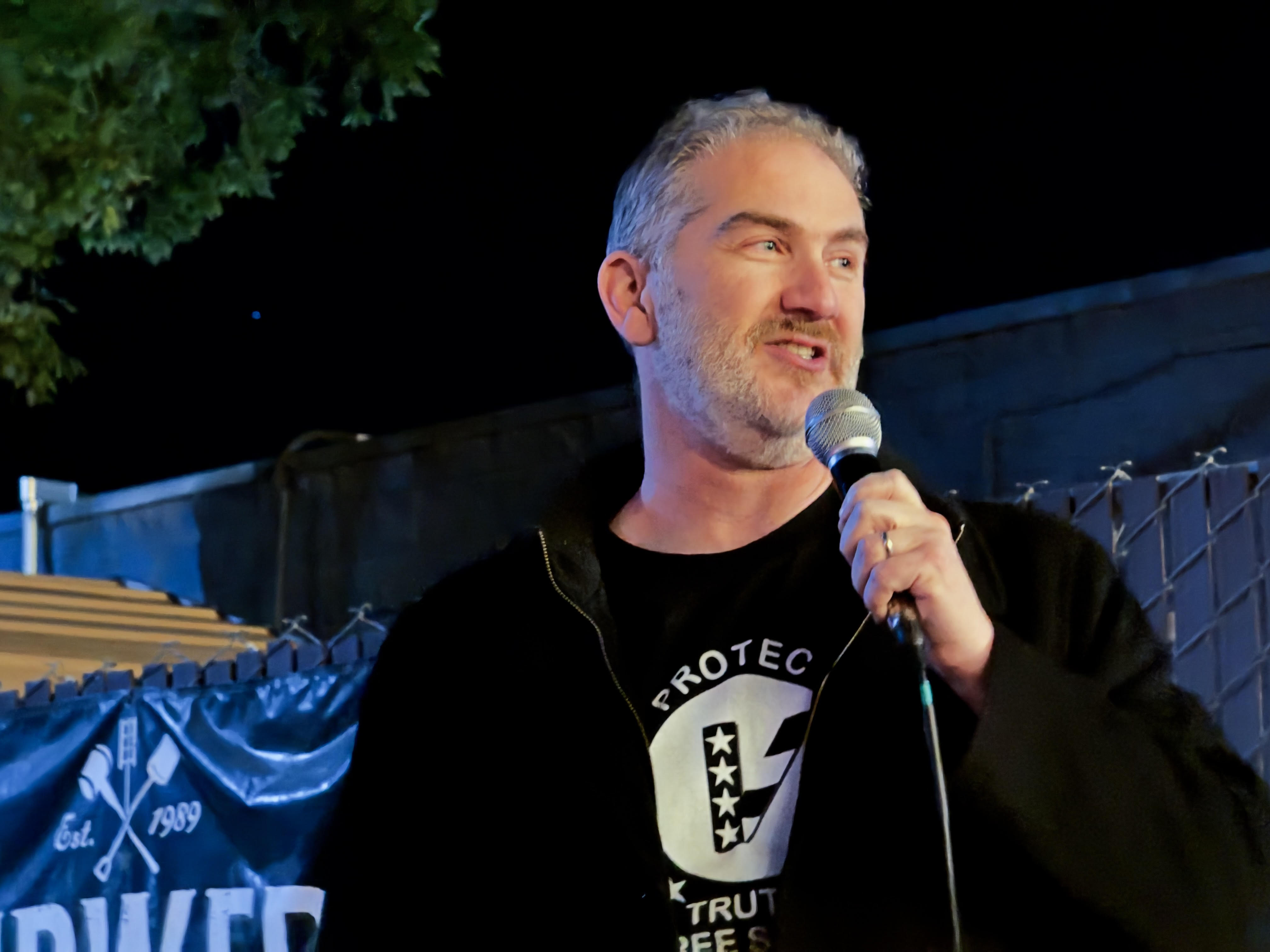

The UC Board of Regents approved UC Davis’ new Long Range Development Plan, setting plans for 9050 beds of new on-campus housing as well as the final EIR for the LRDP. In so doing, they approved plans to build new housing for 3265 students at UC Davis’ West Village.
In approving the new plan, the regents requested that UC Davis continue engaging closely with the city of Davis on housing and planning issues, and report back at a later time on efforts taken to mitigate impacts of campus growth under the previous plan, the university reported on Thursday.
The concession comes as the city expressed concerns about the timing and certainty of the buildout.
“The Final Environmental Impact Report (FEIR) assumes that all of the new on-campus housing contemplated in the Long Range Development Plan will be built within the next 12 years without providing any assurances or implementation timelines. The City has no way of knowing when, or whether, all on-campus units will be built over the course of the LRDP,” the city wrote.
The city is also concerned about the impacts of increased population on the city, as well as transportation, air quality, and the need for the city to provide more public services such as police and fire – including through increased mutual aid that might be necessary for a growing campus.
“The City is looking to raise some issues of concern about which the City Council feels strongly. We want to make sure that university growth is adequately planned,” said Mayor Brett Lee said in a  statement.
statement.
“The City Council is appreciative of the inclusion of the additional proposed student beds on campus, however, the details of implementation and the assessment of local impacts on our community associated with UC Davis’ future student enrollment growth require additional attention,” Councilmember Lucas Frerichs added.
However, the regents and university did not turn a blind eye to those concerns.
In a letter to Mayor Brett Lee, UC Davis Chancellor Gary May expressed the university’s intention “to actively engage the surrounding community in pursuit of mutually beneficial outcomes for the university and local neighborhoods.”
He wrote: “As I noted previously, the housing plan in the LRDP provides many opportunities for our students to live on campus, and there are many benefits from these investments. In light of these investments and activities, it’s more important than ever that we identify and implement processes that support greater partnership and collaboration on matters of mutual interest with shared accountability.”
His letter identified three actions to strengthen city-campus interactions.
First, he proposed “an annual Town/Gown meeting where we each report on activities of mutual interest. Topics for the campus might include enrollment, housing, transportation, student support resources and other activities with shared impact, opportunity or challenges.”
Second, he proposed an annual joint housing report.
He writes: “In this report, we would each address the status of current housing projects and provide data and plans about new housing projects that extend out at least 10 years. As an early indication of our commitment to this new report, I have asked Vice Chancellor Kelly Ratliff to provide a high-level overview of all proposed student housing associated with the 2018 LRDP by Aug. 1.”
Finally, he proposed that “we jointly convene a city-campus workgroup that would meet at least quarterly to engage in discussions, offer advice, and, where appropriate, partner to address issues and concerns and leverage opportunities and successes. I suggest that we charge and convene the workgroup by Sept. 7 and that the first priority be a recommendation and implementation plan for the annual Town/Gown meeting and housing report.”
The concessions come as the city wrote a letter warning of the inadequacy of the LRDP and EIR and threatening potential legal action.
Whitney McDonald, an attorney with Richards, Watson & Gershon (RWG), writing on behalf of the city, warned that the LRDP will be built within the next 12 years without providing any assurances, including an identifiable and enforceable implementation plan “that this will actually occur.”
The city, Ms. McDonald writes, “believes these issues may be addressed through further analysis and adoption of additional mitigation measures, but more time for consultation with the City and others, and a revised FEIR, will be necessary.”
However, she held out the hope for collaboration: “Such a collaborative approach is critical to the ongoing relationship of the City and the University, and has been urged by other commenters such as the County of Yolo, which ‘urges serious consideration of the City’s comments.’”
Indeed, as the county aptly put it: “As a partner, it is important that UC Davis be responsive and understanding of the needs of our local communities and strengthen this collaborative relationship. In the spirit of this collaborative partnership, we trust UC Davis will consider and address the comments brought forward by the City of Davis and other jurisdictions.”
The city adds hopefully: “Response to Local Community Requests. We are hopeful that more direct and responsive collaboration can occur now, before any action is taken on the FEIR or the LRDP.”
However, it warns, “Absent such steps, the FEIR will remain legally inadequate, and the City may be forced to pursue other legal remedies to ensure that the environmental impacts of the LRDP are addressed appropriately.”
The action by the Board of Regents and the letter by Chancellor May suggest that UC Davis will create some formal mechanisms to address some of the city’s concerns. The question is – will they be sufficient?
—David M. Greenwald reporting
Get Tickets To Vanguard’s Immigration Rights Event

Private services will be held. The family prefers donations to the charity of your choice.
Well, I recall some identifying it as DOA quite some time ago…
Just making sure you’re reading closely… Apparently was a little extra-tired this morning.
What a weak proposal from UCD. So no time table. No commitment. No official revisions. Just talk
I don’t want to defend UC, but Craig should remember that just like my kids have a little of their own money and can buy little things without the OK from their parents UC Davis can so little things without asking the Regents for the OK, but if UC Davis wants to build a couple thousand units they need the OK (and money) from the Regents.
The Chancellor’s letter indeed is a prime example of “too little, too late.” Last summer the Yolo County Board of Supervisors and the Davis City Council jointly appointed a “2x2x2” LRDP committee for the purpose of collaborating with UCD on the LRDP. Despite repeated attempts by the City to garner 2 UCD reps, the university never appointed anyone. Inquiries by local citizen advocates about the status of UCD’s 2 reps likewise went unanswered. The lack of meaningful response by UCD essentially “forced the City’s hand,” resulting in the City’s recent excellent letter to the Regents and the 19-page CEQA deficiency comment letter by the City’s outside legal counsel.
I recommend that the City embark upon 2 parallel, simultaneous courses of action. First, file a CEQA appeal within the required 30 days to keep UCD’s feet to the fire. Otherwise, UCD will have no motivation to engage in any meaningful way, plus it will keep the City’s options open going forward. Second, launch discussions with UCD with the goal of negotiating and executing a legally binding and enforceable agreement that obligates UCD to a definitive on-campus student housing financing and construction schedule, whereby new student housing construction will occur on pace with growth in the student population.
Another goal of such an agreement would be to make up for the substantial housing construction shortfalls relative to the UCD student housing goals set forth in the November 2002 student housing report issued by the Board of Regents and the 2003 UCD LRDP. Such a legally binding agreement should specify UCD’s obligations should enrollment growth exceed the LRDP’s projections. This is important because UCD has historically exceeded its growth projections by substantial margins, while under-producing housing. Such a legally binding agreement should also specify a timeline by which UCD will cancel its current off-campus master lease agreements, which I believe includes both the Lexington Apartments and the Adobe apartments. This would return both apartment complexes to the property tax rolls.
Under no circumstances should the City again agree to an MOU with UCD. If history provides any lesson, it is that inevitable turnover in city council, city management and UCD administration will make such an MOU easily forgotten. Witness the June 1989 MOU that described how UCD’s purchase of off-campus property in recent years had deprived the City of about $80,000/year in property tax revenue. The MOU stated that within 2 years UCD and the City would agree on measures to mitigate the lost revenue, but to my knowledge such a solution was never attained. In fact, last year UCD offered $66 million for the Interland business park; fortunately, Mark Friedman’s reportedly $70 million offer was accepted by the sellers. Had UCD been successful, the business park would have been removed from the tax rolls, depriving both the City and County of badly needed property tax revenue. In negotiating with UCD, I hope the City is mindful of the 1971 song by The Who, “Won’t Get Fooled Again.”
It would seem the only way for the city to level the playing field would be to successfully sue the Regents on the inadequacy of their plan and seek a large bond that would be paid out to the city if they fail to follow through. Otherwise, yes, we just got slapped pretty hard.